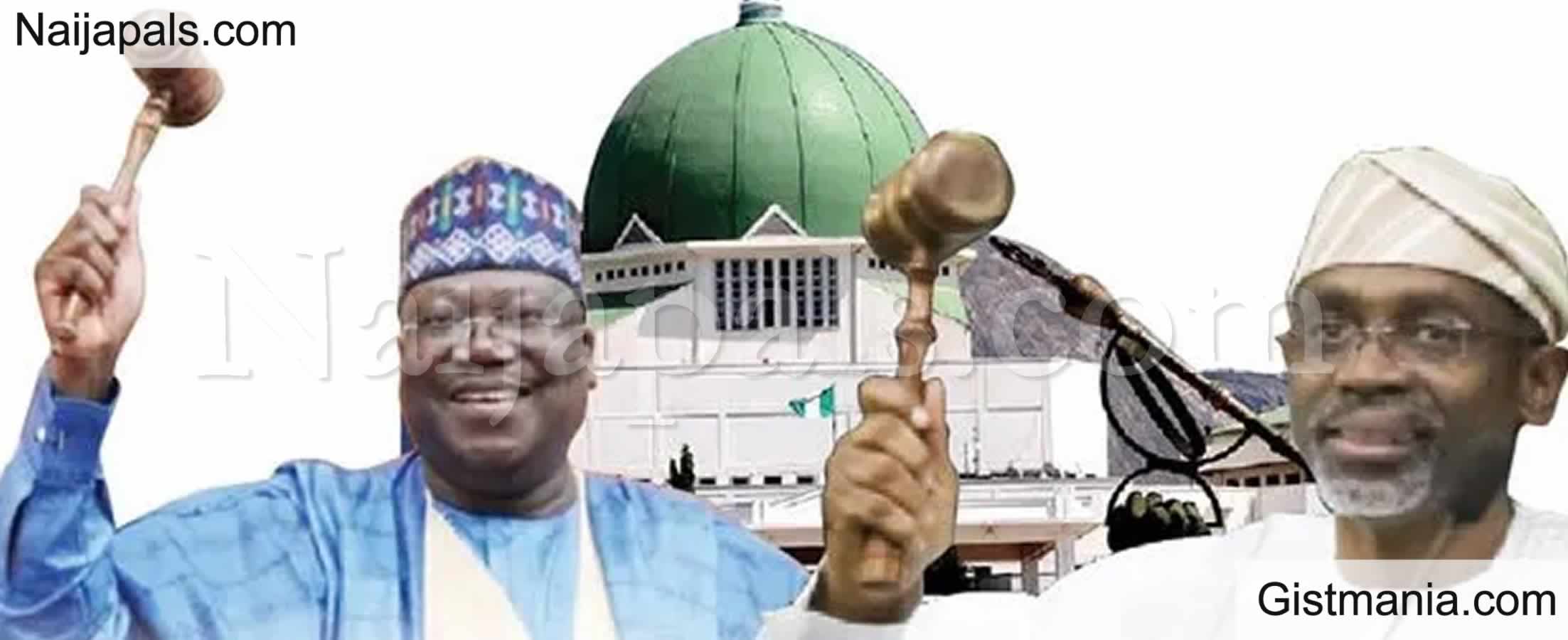
AS Nigerians continue to wait in anticipation for credible electoral reforms, Civil Society Organisations, CSOs, Thursday, raised the alarm over grammatical errors and duplicate provisions in the Electoral Act Amendment Bill currently with the National Assembly.
This was made known in statement signed by the CSOs lead by Yiaga Africa, include International Press Centre (IPC); Centre for Citizens with Disability (CCD); The Albino Foundation; CLEEN Foundation; Institute for Media and Society (IMS); Nigerian Women Trust Fund (NWTF); Premium Times Centre for Investigative Journalism (PTCIJ); Partners for Electoral Reform (PER); Civil Society Legislative Advocacy Centre (CISLAC); Women Advocates Research and Documentation Centre (WARDC); and Nigerian Network of Non-Governmental Organizations (NNNGO) during a media briefing held in Abuja.
The Executive Director, Yiaga Africa, Samson Itodo, read the statement, which pointed that civil society groups undertook an in-depth and comprehensive review of the bill to ensure all editorial, drafting and cross-referencing gaps are addressed.
Also in a remark, the Convener, Nigeria Civil Society Situation Room, Ene Obi, acknowledged effort made by National Assembly members on the Electoral Act Amendment Bill, but said the work is not done yet.
Obi also stated that with the timely intervention by NASS the elections in Osun and Ekiti States respectively will benefit from the Bill when passed into law.
However, she pointed that the issue of voter apathy is worrisome in Nigerian unless votes count this time around, there will be serious voter apathy including 2023 general elections, and she urged members of NASS to do the needful in the interest of Nigerians when they resume from their Christmas and New Year break.
The statement reads in part, “Following the President’s decision to decline assent to the Electoral Bill 2021, civil society groups undertook an in-depth and comprehensive review of the bill to ensure all editorial, drafting and cross-referencing gaps are addressed.
“The review identified drafting errors, repetition and cross-referencing gaps in eleven sections of the bill. Cross-referencing errors were identified in five sections of the bill, grammatical errors in two sections, duplicate provisions in three sections and conflicting provisions in one section of the bill.
“Without doubt, these errors will occasion controversies and legal complications in the implementation of the bill when enacted.”
CSOs also recalled that in August 2018, President Buhari, premised his decision of declining assent to the 2018 Electoral (Amendment) Bill on certain drafting errors and cross-referencing gaps in the Bill.
“Therefore, it is imperative for the National Assembly to ensure due diligence before transmitting the Electoral Bill 2021 back to the President for assent to prevent the current bill from suffering the same fate. As part civil society’s contributions to the ongoing reform process, a detailed memorandum was submitted to the leadership of the National Assembly on December 29, 2021. The memorandum highlights the affected sections and specific recommendations for addressing the errors”, they added.
The statement also raised concern over off-cycle elections to hold in the Federal Capital Territory, FCT, Ekiti and Osun States in 2022 including the 2023 general elections, which according to it calls for a new legal framework in order to safeguard the integrity of these elections.
“The Electoral Bill 2021 is replete with provisions that address electoral manipulation and the intractable and protracted problem of poor election logistics. Furthermore, the bill strengthens INEC’s financial independence and it also empowers the commission to reject falsified election results.
“The newly introduced timelines for key electoral activities in the bill will facilitate early electoral preparations and promote issue-based political engagement.
“Therefore, it is imperative for the National Assembly and the President to ensure the electoral reform process is concluded expeditiously. Any further delay in concluding the process of enacting the Electoral Bill 2021 will directly impact preparations for the 2023 General Election.
“As noted earlier in our previous statement, a climate of legal uncertainties will befall upcoming elections and Nigeria will lose the opportunity to test the efficacy of new innovations introduced in the electoral Bill, especially during the off-cycle elections in Ekiti and Osun, before deployment for the 2023 General Elections”, it pointed.
However, the CSOs in the statement recommended that, “The National Assembly should address the identified drafting errors in the eleven sections of bill before re-transmitting the Electoral Bill 2021 for Presidential Assent; We reiterate our earlier call on the National Assembly to expeditiously conclude this process and re-transmit the Electoral Bill 2021 to the President for assent within 30 days from 21st December 2021.
“The President assents to the Bill within a week upon receipt from the National Assembly; Civil society groups, media, and development partners sustain the effort to safeguard the Electoral Bill from policy capture, manipulation, and subversion of the people’s will.”
| Posted: at | |



 TRENDING GISTS
TRENDING GISTS  VIDEO; "Davido Gifted My Girlfriend ₦10 Million For Supporting Me" - Rapper, Odumodublvck
VIDEO; "Davido Gifted My Girlfriend ₦10 Million For Supporting Me" - Rapper, Odumodublvck 2face Idibia Calls For Complete Overhaul Of Nigeria’s Education System
2face Idibia Calls For Complete Overhaul Of Nigeria’s Education System Mayor Of Boston Celebrates Nigerian Singer, Rema’s Role In Championing Afrobeat Worldwide
Mayor Of Boston Celebrates Nigerian Singer, Rema’s Role In Championing Afrobeat Worldwide PHOTOS: Troops Arrest Four Suspected Terrorists, Recover Arms And Ammunition In Taraba
PHOTOS: Troops Arrest Four Suspected Terrorists, Recover Arms And Ammunition In Taraba Labour Party Suspends Abia Governor Alex Otti, Five Others Over Alleged Anti-Party Activities
Labour Party Suspends Abia Governor Alex Otti, Five Others Over Alleged Anti-Party Activities